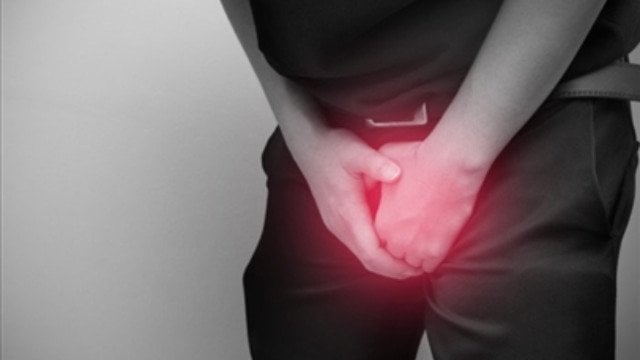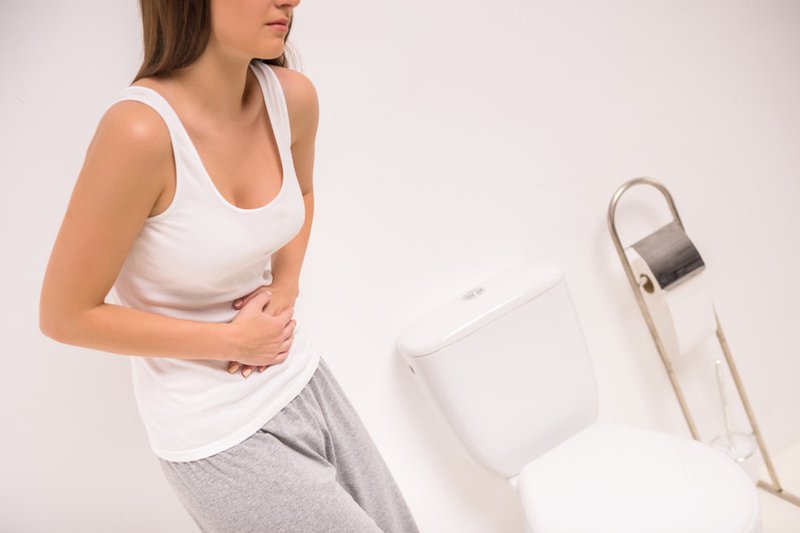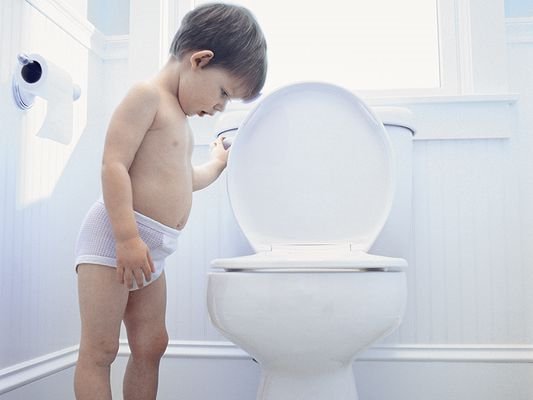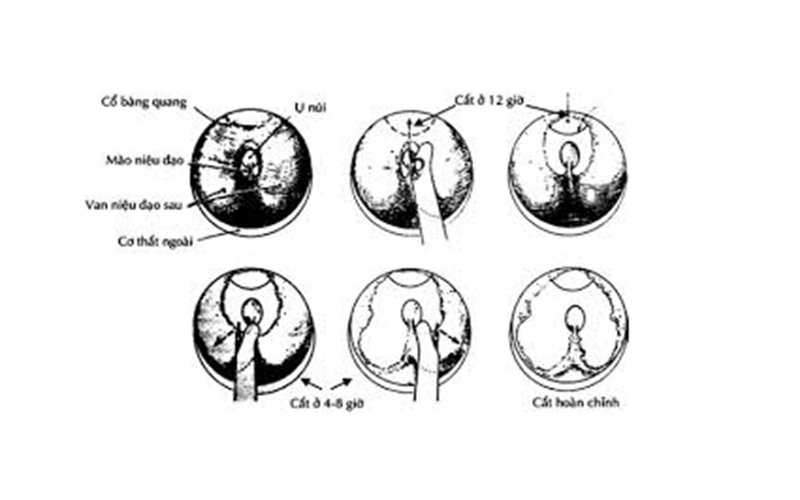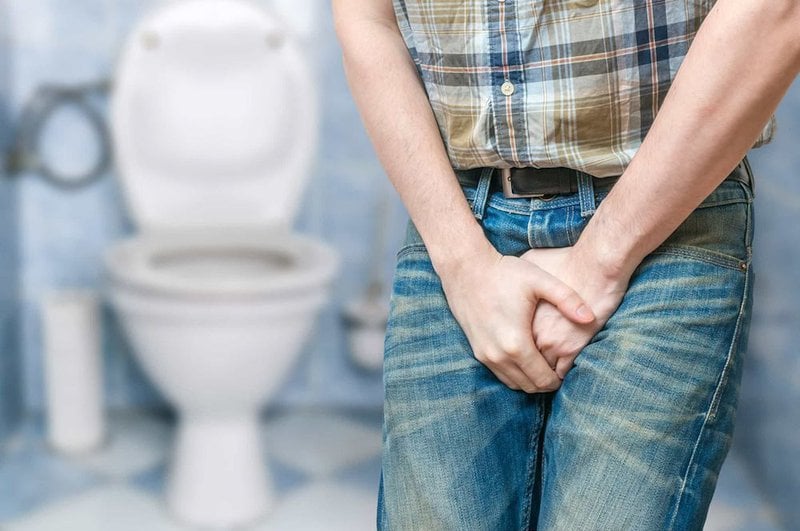How to pee easier with an enlarged prostate?
This is an automatically translated article.
Medications for an enlarged prostate, this condition can cause uncomfortable problems such as frequent urination at night, difficulty emptying the bladder completely, and an urgent need to urinate. at inconvenient times. So how to urinate easier when having an enlarged prostate? Read more to understand better.
1. What is an enlarged prostate (BPH)?
Prostate enlargement causes noticeable problems in one-third of men over the age of 60. Drug treatment relieves symptoms and for serious problems of an enlarged prostate. An enlarged prostate is a condition in which your prostate gland becomes enlarged. The prostate gland goes through two major growth cycles in a man's life. The first occurs early in puberty, when the prostate gland doubles in size. The second growth spurt begins at age 25 and lasts for most of the rest of a man's life. Prostate enlargement is most common during this second growth phase.
When the prostate gland is enlarged, it presses against the urethra. The bladder wall becomes thicker. At some point, the bladder can weaken and lose its ability to empty completely, always leaving some urine in the bladder. Narrowing of the urethra and urinary retention - the inability to empty the bladder completely - cause many problems with an enlarged prostate.
Prostate enlargement is benign. This means it is not a type of cancer. It does not cause or lead to cancer. However, prostate enlargement and cancer can occur at the same time. This condition is not uncommon. About half of men between the ages of 51 and 60 have an enlarged prostate. Even up to 90% of men over 80 years old have this disease.
The prostate gland is part of the male reproductive system. It is about the size of a walnut and weighs about 30 grams. The prostate gland is located below the bladder and in front of the rectum. It is located around a tube called the urethra, which carries urine from the bladder out through the penis. The main job of the prostate gland is to make fluid for semen. During ejaculation, sperm produced in the testicles travel to the urethra. At the same time, fluid from the prostate gland and seminal vesicles also move into the urethra. This mixture includes semen - which passes through the urethra and out through the penis.
When the prostate is enlarged, it can press on and block the bladder. Frequent urination is a common symptom of an enlarged prostate. People with prostate enlargement may urinate continuously, 1 to 2 hours apart, especially at night. In addition, other symptoms of an enlarged prostate include:
Feeling the bladder full, even immediately after urinating Feeling the need to urinate, unable to hold in urine Weak urine stream Frequent and dense urination especially at night Difficulty urinating Needing to strain or exert pressure to urinate As mentioned, an enlarged prostate gland is a benign condition. However, if it becomes severe, you may not be able to urinate. This is an emergency that must be treated immediately.
The cause of prostate enlargement is still unknown by scientists. Some researchers believe that factors related to aging and the testicles may cause this condition. This is because prostate enlargement does not develop in men who have their testicles removed before puberty.
Over the course of their lives, men produce both testosterone, the male hormone, and small amounts of estrogen, the female hormone. As men age, the amount of active testosterone in the blood decreases, causing the ratio of estrogen levels to increase. Studies have hypothesized that prostate enlargement may occur because a higher percentage of estrogen in the prostate increases the activity of substances that initiate prostate cell growth.
Another theory involves dihydrotestosterone (DHT), a male hormone that plays a role in the development and growth of the prostate gland. Several studies have shown that, even when blood testosterone levels begin to drop, high levels of DHT accumulate in the prostate gland. This can prompt prostate cells to continue to grow. The scientists noted that men who did not produce DHT or produced little DHT did not develop an enlarged prostate.
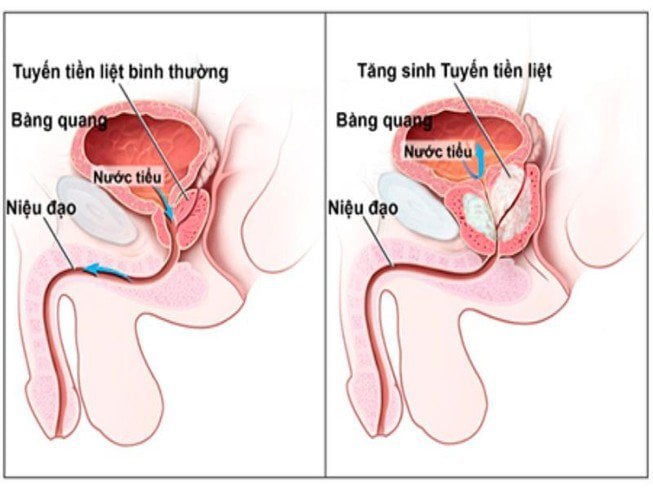
Tuyến tiền liệt là một phần của hệ thống sinh sản của nam giới
2. How to pee easier with an enlarged prostate?
For people with benign prostatic hyperplasia (BPH), there are many discomforts they have to endure. Sometimes they feel the need to urinate, but when they go to the toilet, they cannot urinate. Everything that comes out is like a joke. However, the urge to urinate is still there and it can even be painful.
Benign prostatic hyperplasia is a common (and uncomfortable) medical condition. It affects nearly 50% of men in their 60s. As we age, our prostate gland can become enlarged, pressing on the urethra and part of the bladder. That though doesn't mean we get prostate cancer or are at risk for prostate cancer in the future. But sometimes it can cause problems, such as bladder or kidney damage and urinary incontinence.
In addition, for people with benign prostatic hyperplasia, although not dangerous, it can bring them many inconveniences in life, such as:
Frequent need to urinate Difficulty at the start of urination Weak urine flow Increased need to urinate at night Inability to stop urination Inability to completely empty the bladder Passive urination There are medications that can treat hyperplasia Benign prostate gland and if symptoms cannot be managed, surgery may be an option the patient should consider. There are also stress management exercises and techniques that men can practice on their own to help manage the symptoms of BPH and manage their urinary problems, including:
Keep yourself active: Less physical activity can cause the body to retain urine. Activities like walking, jogging, and swimming can help reduce urinary problems. Do Kegel exercises: Standing or sitting on the toilet and contracting the muscles allows us to stop and start the flow of urine at will. Hold it for 5 to 10 seconds. Do this 5 to 15 times, 3 to 5 times a day to help control bladder function. Myth: Nervous system-related disorders and stress cause some men to urinate more often. Try meditation along with exercise to help reduce stress. Try emptying your bladder completely: When urinating, go once and then try again. This will help them empty their bladder completely, lessen the constant need to urinate and can save us another trip to the bathroom. Avoid using antihistamines and decongestants. These drugs tighten the muscles around the urethra, making it harder for us to urinate. Do not hold urine: When you feel the need to urinate, go immediately and always try to empty all the water in the bladder. Avoid caffeine and alcohol abuse: Both caffeine and alcohol can irritate the bladder and increase urine production, so try to stay away from them, especially at night. Stick to a healthy diet: Sticking to a healthy diet and trying to lose weight is one way to help reduce your risk of BPH. Being overweight or obese makes the symptoms of the disease more severe. Discuss medications with doctors: Some of the medications we take – both prescription and over-the-counter – can worsen the symptoms of benign prostatic hyperplasia. Doctors can help us take the right medicine at the right dose. The Food and Drug Administration has not approved any herbal treatments for the relief of symptoms of an enlarged prostate. If your benign prostatic hyperplasia doesn't seem to be getting under control or it's not working to control your symptoms, don't worry. Consult with your doctor for advice on effective treatments or, in the worst case, your doctor may recommend surgery.
For men, prostate enlargement is quite common. Although they are not a malignancy, in some cases an enlarged prostate can make a person uncomfortable and inconvenient in his or her daily life. Treatment for an enlarged prostate also varies, from medication to surgery. In addition, changing certain habits, changing the diet or simply adjusting the urination habits can also have a positive effect on the symptoms of the disease.

Tuân thủ chế độ ăn uống lành mạnh
Patients suspected of having an enlarged prostate can go to public hospitals at the district level or higher, or private hospitals and clinics that specialize in Nephrology - Urology for examination and treatment.
There are many public and private hospitals that can examine and treat this disease, but many patients still wonder which hospital is the best for prostate examination. You should choose Vinmec to examine and treat prostate enlargement for the following reasons:
Vinmec Hospital is equipped with a modern ultrasound system with flat transducers, high frequency, and high resolution. HD produces clear images, helping to accurately detect lesions. There is an advanced laboratory system, meeting international standards. Along with that is a team of leading experts with extensive experience in the field of urology. Patients with prostate cancer after examination will be consulted to choose the appropriate treatment method. To detect prostate enlargement, patients need to be asked about the disease, clinical examination and necessary paraclinical tests, the most important of which is prostate ultrasound.
Please dial HOTLINE for more information or register for an appointment HERE. Download MyVinmec app to make appointments faster and to manage your bookings easily.
References: urologyhealth.org, webmd.com
This article is written for readers from Sài Gòn, Hà Nội, Hồ Chí Minh, Phú Quốc, Nha Trang, Hạ Long, Hải Phòng, Đà Nẵng.

